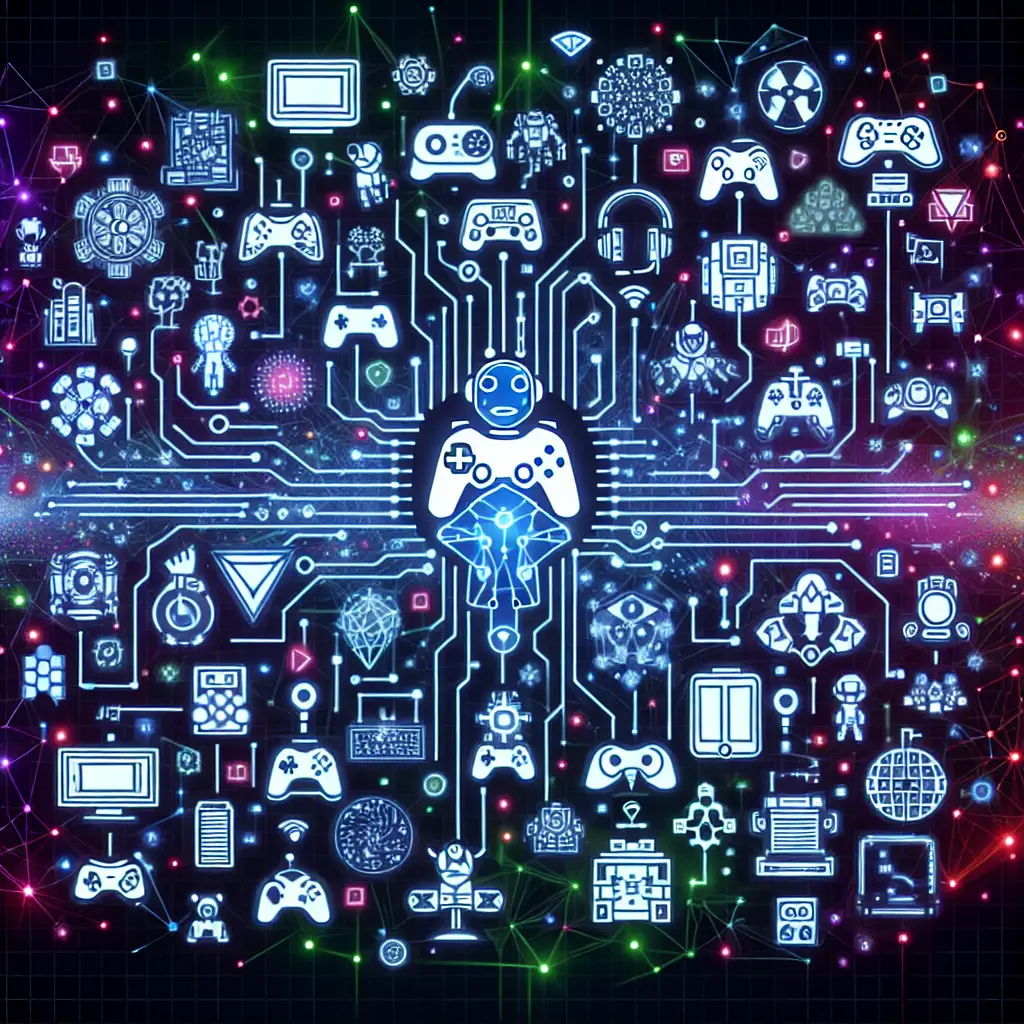Artificial intelligence (AI) is driving a revolutionary change across various industries, and the gaming landscape is certainly no exception. The influence and impact of AI on the gaming industry are profound, enhancing the gaming experience for players while also presenting notable opportunities for developers.
The gaming industry dominates the entertainment sector, with new technologies playing a pivotal role in its growth. The core imperative of these advancements is to make gaming more interactive, immersive, and enjoyable for users. Artificial intelligence does just that – it powers innovation and offers new dimensions of interactivity in games.
Interactive Non-Playing Characters
Traditionally, non-playable characters (NPCs) in videogames were programmed to work through pre-determined scripts and routes. These NPCs were predictable and essentially acted out pre-recorded scripts. With AI, this has changed dramatically.
Modern AI algorithms allow NPCs to learn from their surroundings and player interactions, exhibiting dynamic behavior patterns and responses. This level of interactivity brings games alive, making the experience more real and less predictable. Game developers use machine learning, a subset of AI, to enable NPCs to learn from their past experiences, player actions, and environment, in real time.
An aberration from the quartz clockwork of code-driven characters, NPCs harnessed via AI and machine learning not only offer better game experiences but also challenge the players more intensely, making the games engaging and exciting.
Procedural Content Generation
The meticulous designing of game scenes, levels, missions, and other in-game content can be labor-intensive and time-consuming. In recent years, AI has stepped in to ameliorate this challenge, performing as a critical tool for procedural content generation (PCG).
AI, particularly machine learning algorithms, can design intricate and singular game levels with limited input from developers, reducing the grunt work and streamlining the game development process. Procedural content generation can denote anything from designing entire game worlds to fabricating detailed in-game items or characters.
Celeste, a critically acclaimed indie platformer, presents a prime example of a game successfully implementing AI-based PCG. The game features a wide variety of challenging and engaging levels that are entirely machine-generated.
Better Graphics and Realistic Physics
AI’s influence extends beyond game mechanics and to visual aesthetics as well. AI algorithms, particularly deep learning, are driving impressive improvements in game graphics. For instance, AI-driven real-time ray tracing brings stunning, realistic lighting and reflections to games, while generative adversarial networks could make game graphics more detailed and visually striking.
Moreover, AI models can replicate realistic physical forces and behaviors in the game world. The game physics engines, powered by AI, can simulate gravity, collisions, and fluid dynamics with verisimilitude. This makes games visually captivating and adds a layer of plausibility to virtual environments.
Detecting and Countering Cheating
The issue of player cheating can erode the gaming experience and compromise the competition’s integrity. AI, with its ability to discern patterns and behaviors, helps tackle cheating with greater efficiency.
Machine learning models can be trained to identify common and new cheating strategies and behaviors, even those that human moderators might miss. This fast, automated detection system can quickly take action, ensuring a fair environment for all players.
Personalized Gaming Experience
Another significant impact of AI in gaming is the personalization of the gaming experience. By observing, learning, and analyzing player behaviors, AI can tailor gaming experiences to individual players.
AI can adapt game difficulty, missions, and rewards based on each player’s playing style, skill level, and preferences. This personalization not only increases engagement and immersion but also helps retain players by consistently offering fresh, distinct experiences curated for each player.
The recommenders in online game stores also employ AI to suggest new games that align with players’ tastes, based on their gaming history and ratings.
Transforming Esports
AI is radically shifting the dynamic of esports as well. Aside from balancing games and detecting cheats, AI collects and analyzes exhaustive data during esports matches, providing casters, coaches, and players with valuable insights into strategies, player behavior, and performance metrics.
The Role of AI in Game Testing
Developing a videogame is a multifaceted process that requires rigorous testing for bugs, balance issues, and other potential problems. Traditionally, human testers carried out this task, which was arduous and time-consuming.
AI revolutionizes this process by eliminating the heavy reliance on human testers. It can rigorously test games, identify bugs, suggest balances, and even predict how players could exploit the game mechanics. This accelerated, data-driven testing approach saves considerable time and resources, allowing developers to focus on creative aspects of game design.
Final Thoughts
The impact of AI on the gaming industry is multi-dimensional, revolutionizing the standard gaming experience. As games become more dynamic, personalized, and engaging through AI, it is estimated that the integration of artificial intelligence will only deepen. AI promises a future where games are more immersive, realistic, and innovative, making the gaming industry an exciting arena of technological evolution.
Share this content:
